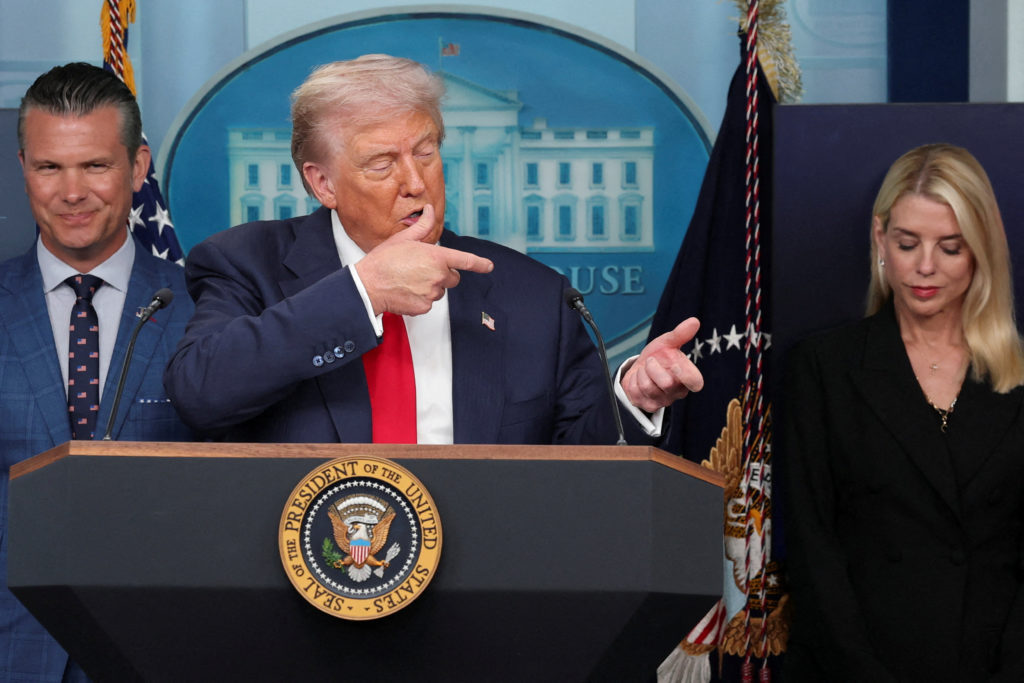
In a shocking turn of events, the FBI arrested Sheriff Steven W. Tompkins, the Democratic sheriff of Suffolk County, Massachusetts, after a major investigation revealed allegations of extortion linked to the cannabis industry.
Tompkins, 67, who has served as the head of the Suffolk County Sheriff’s Department, which oversees the city of Boston, was indicted by a federal grand jury on two counts of extortion under color of official right.
The charges stem from his involvement in a scheme where he allegedly used his official position to demand an equity interest in a Boston-based cannabis company.
Tompkins, who has been a prominent public figure in Boston and a sheriff responsible for managing over 1,000 employees, was arrested earlier today in the Southern District of Florida.
Following his arrest, he is scheduled to appear in federal court at 11:00 a.m. for his initial court hearing, and will later face arraignment in Boston.
According to the indictment, the alleged extortion took place in 2019 when a cannabis company applied for a license from the state’s Cannabis Control Commission to sell recreational marijuana in Boston.
As part of the city’s social equity requirements for cannabis businesses, the company hired Tompkins’ office to assist with the hiring of former inmates for the company’s workforce. In exchange for this support, Tompkins reportedly leveraged his official position to extract a personal financial gain.
The partnership began when the cannabis company sought Tompkins’ assistance in fulfilling the state’s social equity criteria, which includes employing individuals who have been impacted by the criminal justice system.
Tompkins provided a letter of endorsement to the Cannabis Control Commission, backing the company’s application for a license to operate in Boston. However, according to the indictment, shortly after the endorsement was sent, Tompkins allegedly pressured the company’s executives to provide him with stock in the business.
The sheriff allegedly reminded the executive that without his support, the company would not have secured its license to operate in Boston.
The FBI’s investigation into Tompkins came after multiple interviews with employees at the cannabis company and a detailed review of communications between Tompkins and the business.
The evidence gathered showed that Tompkins used his powerful position as sheriff to make demands on the company, resulting in a series of actions that were allegedly aimed at benefitting him personally.
Prosecutors argue that Tompkins, a public official, abused his authority to gain an unfair financial advantage by forcing a company to offer him stock as a condition for his endorsement.
The arrest of Sheriff Tompkins marks a significant development in the ongoing efforts to combat public corruption, particularly among elected officials. U.S. Attorney Leah B. Foley, who oversees the prosecution of the case, condemned Tompkins’ alleged actions as a clear violation of the public trust.
In a statement, Foley remarked, "Mr. Tompkins is a sitting Sheriff, responsible for over 1,000 employees, who was elected by the good people of Suffolk County. Today, he is alleged to have extorted an executive from a cannabis company, using his official position as Sheriff to benefit himself.”
Foley continued, emphasizing the damage done to the public’s trust in their elected officials: "Elected officials, particularly those in law enforcement, are expected to be ethical, honest, and law-abiding—not self-serving.

His alleged actions are an affront to the voters and taxpayers who elected him to his position, and the many dedicated and honest public servants at the Suffolk County Sheriff’s Department. The people of Suffolk County deserve better."
This case is yet another example of how public officials in positions of power may be tempted to misuse their authority for personal gain. The allegations against Tompkins highlight a broader concern about corruption and unethical behavior among individuals who hold public office, particularly those in law enforcement.
Public corruption remains a high priority for federal prosecutors, who have vowed to continue investigating and prosecuting individuals who exploit their positions for their benefit.
The allegations against Tompkins come at a time when law enforcement leaders across the country are under increasing scrutiny. As public servants, sheriffs, police officers, and other law enforcement officials are held to high ethical standards, and any violation of that trust can have far-reaching consequences.
In Tompkins’ case, the alleged extortion scheme not only harms his reputation but also casts a shadow over the integrity of his department and its employees.
The Suffolk County Sheriff’s Department, which Tompkins has led for nearly a decade, is a significant part of law enforcement in the Boston area. Tompkins’ position as the sheriff of Suffolk County gave him considerable influence, not only within the department but also within the local community.
As sheriff, he oversaw the operation of county jails and played an important role in implementing policies related to criminal justice reform and the rehabilitation of incarcerated individuals.
However, the indictment alleges that he used his public office to benefit from his connection to a private business, namely a cannabis company seeking to secure a lucrative business license.

In Massachusetts, the cannabis industry has grown rapidly since the legalization of recreational marijuana in 2016. The state’s Cannabis Control Commission, which regulates the marijuana market, has introduced policies aimed at ensuring that individuals from communities disproportionately impacted by the war on drugs benefit from the emerging industry.
These social equity programs have been designed to provide economic opportunities to people with criminal records or who have been affected by the criminal justice system.
However, the involvement of law enforcement officials like Tompkins in these business dealings raises questions about the potential for exploitation and misuse of power.
The case is still in its early stages, and Tompkins has yet to enter a plea. However, if convicted, he faces significant legal consequences, including possible prison time.
Extortion under color of official right is a serious federal crime, and the penalties for conviction can be severe. Depending on the outcome of the trial, Tompkins could face years in prison, fines, and other legal consequences.
Tompkins’ arrest also raises questions about the broader issue of corruption in local law enforcement agencies. While the sheriff’s office is responsible for overseeing the county jails and enforcing the law, public trust in these institutions can be severely damaged when officials abuse their power.
The public’s faith in the criminal justice system relies on the understanding that law enforcement officers will carry out their duties fairly and impartially. Allegations of corruption, like those against Tompkins, erode that trust and further deepen public cynicism about the integrity of law enforcement.
As the investigation into Tompkins continues, the FBI is also looking into other potential criminal activities tied to the cannabis industry and the role of public officials in facilitating business opportunities for private companies.

The investigation is expected to expand as federal authorities continue to uncover new leads and gather more evidence related to potential misconduct.
For now, the arrest of Sheriff Steven W. Tompkins serves as a powerful reminder of the importance of maintaining ethical standards in public office. Elected officials, especially those in positions of authority like sheriffs, are entrusted by the public to serve the community with integrity and fairness.
The alleged actions of Tompkins have not only damaged his own career but also cast a shadow over the Suffolk County Sheriff’s Department. The people of Suffolk County deserve leaders who uphold the law and act in the best interests of their community.
This case will likely continue to develop over the coming months, and it may serve as a cautionary tale for other public officials tempted to exploit their power for personal gain.
As this case progresses, the ongoing investigation and the legal proceedings will likely dominate public attention, particularly in Boston, where Tompkins has held a prominent position for years.
The outcome of his case may shape the future of the Suffolk County Sheriff’s Department and influence broader efforts to address public corruption at the local level.




